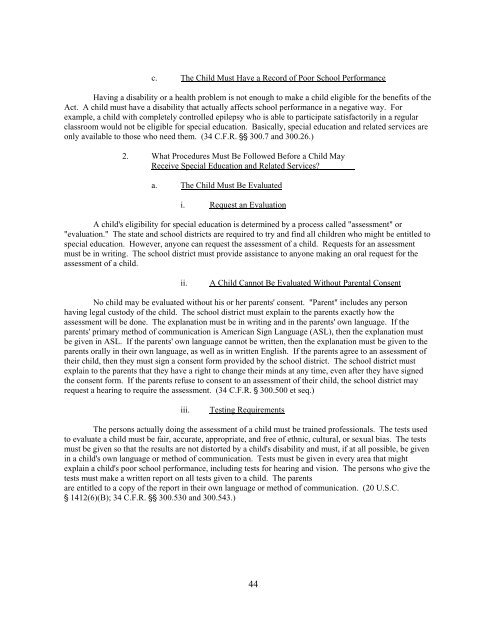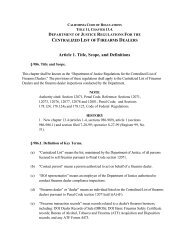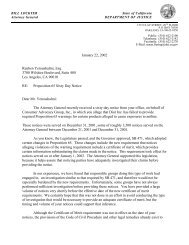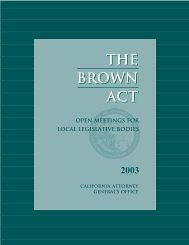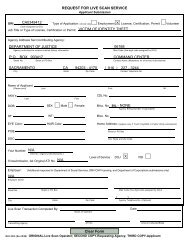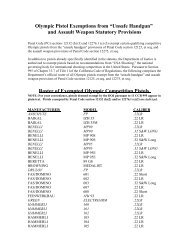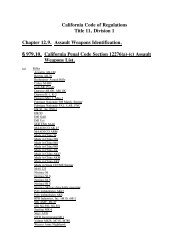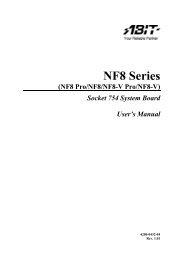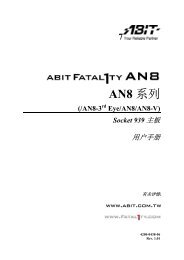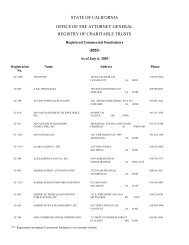Legal Rights of Persons With Disabilities - Ossh.com
Legal Rights of Persons With Disabilities - Ossh.com
Legal Rights of Persons With Disabilities - Ossh.com
Create successful ePaper yourself
Turn your PDF publications into a flip-book with our unique Google optimized e-Paper software.
c. The Child Must Have a Record <strong>of</strong> Poor School Performance<br />
Having a disability or a health problem is not enough to make a child eligible for the benefits <strong>of</strong> the<br />
Act. A child must have a disability that actually affects school performance in a negative way. For<br />
example, a child with <strong>com</strong>pletely controlled epilepsy who is able to participate satisfactorily in a regular<br />
classroom would not be eligible for special education. Basically, special education and related services are<br />
only available to those who need them. (34 C.F.R. '' 300.7 and 300.26.)<br />
2. What Procedures Must Be Followed Before a Child May<br />
Receive Special Education and Related Services<br />
a. The Child Must Be Evaluated<br />
i. Request an Evaluation<br />
A child's eligibility for special education is determined by a process called "assessment" or<br />
"evaluation." The state and school districts are required to try and find all children who might be entitled to<br />
special education. However, anyone can request the assessment <strong>of</strong> a child. Requests for an assessment<br />
must be in writing. The school district must provide assistance to anyone making an oral request for the<br />
assessment <strong>of</strong> a child.<br />
ii.<br />
A Child Cannot Be Evaluated <strong>With</strong>out Parental Consent<br />
No child may be evaluated without his or her parents' consent. "Parent" includes any person<br />
having legal custody <strong>of</strong> the child. The school district must explain to the parents exactly how the<br />
assessment will be done. The explanation must be in writing and in the parents' own language. If the<br />
parents' primary method <strong>of</strong> <strong>com</strong>munication is American Sign Language (ASL), then the explanation must<br />
be given in ASL. If the parents' own language cannot be written, then the explanation must be given to the<br />
parents orally in their own language, as well as in written English. If the parents agree to an assessment <strong>of</strong><br />
their child, then they must sign a consent form provided by the school district. The school district must<br />
explain to the parents that they have a right to change their minds at any time, even after they have signed<br />
the consent form. If the parents refuse to consent to an assessment <strong>of</strong> their child, the school district may<br />
request a hearing to require the assessment. (34 C.F.R. ' 300.500 et seq.)<br />
iii.<br />
Testing Requirements<br />
The persons actually doing the assessment <strong>of</strong> a child must be trained pr<strong>of</strong>essionals. The tests used<br />
to evaluate a child must be fair, accurate, appropriate, and free <strong>of</strong> ethnic, cultural, or sexual bias. The tests<br />
must be given so that the results are not distorted by a child's disability and must, if at all possible, be given<br />
in a child's own language or method <strong>of</strong> <strong>com</strong>munication. Tests must be given in every area that might<br />
explain a child's poor school performance, including tests for hearing and vision. The persons who give the<br />
tests must make a written report on all tests given to a child. The parents<br />
are entitled to a copy <strong>of</strong> the report in their own language or method <strong>of</strong> <strong>com</strong>munication. (20 U.S.C.<br />
' 1412(6)(B); 34 C.F.R. '' 300.530 and 300.543.)<br />
44


